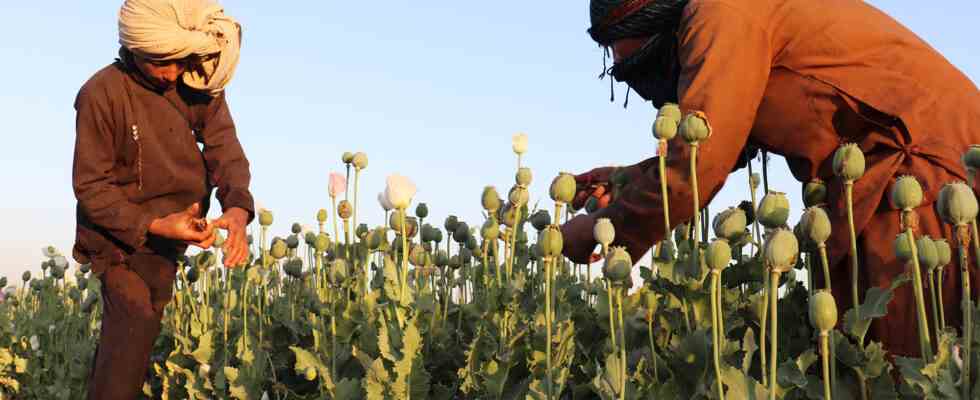Status: 11/01/2022 2:45 p.m
According to a UN report, opium cultivation in Afghanistan has increased by almost a third since the beginning of the year compared to the previous year. The Taliban actually banned the cultivation of the drug, but there were still exceptions for the current crop.
Under the rule of the Islamist Taliban, farmers in Afghanistan have increased opium cultivation by almost a third this year compared to 2021, according to the UN. According to the United Nations Office on Drugs and Crime (UNODC) in Vienna, the area under cultivation for the drug has increased by 32 percent to 233,000 hectares. This is the third largest area since surveys began in 1994. The UNODC report was the first since the radical Islamist Taliban took power again in August 2021.
When the Taliban first came to power, they banned cultivation in 2000. A few months later, after the attacks of September 11, 2001, they were driven out by a US-led military coalition.
During the two decades of their presence in Afghanistan, the US and other NATO countries tried to restrict opium cultivation by financially rewarding farmers for growing other crops, such as wheat or saffron. According to experts, however, these attempts were thwarted at the time by the Taliban, who controlled the main opium-growing areas and made hundreds of millions of dollars in profits from them.
UN: Harvest “most profitable in years”
After the violent seizure of power, the Taliban then banned cultivation again in April of this year. However, they allowed extensive exceptions for the current year’s harvest – which, according to UNODC information, led to a rapid increase in the price of opium. As a result, the 2022 harvest is the “most profitable in years,” the UN organization said.
Compared to 2021, the yield increased from 425 million to 1.4 billion dollars – despite around ten percent lower crop yields due to a drought at the beginning of the year.
Farmers have to make decisions
At the beginning of November, Afghan farmers will have to decide whether and to what extent they will continue to use opium despite the ban on opium cultivation. According to the UNODC report, the farmers are “trapped in the illegal opium economy” due to the current high prices. It is unclear how the Taliban will enforce the ban.
Opium is the basis for the drug heroin. According to UN figures, Afghanistan almost has a monopoly on opium cultivation with around 80 to 90 percent of the world quantity.

